What's New
Displaying results 2361 - 2370 of 4052
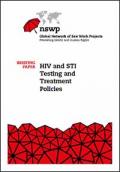
Resource | Publications,
This briefing paper explores sex workers' experiences of HIV and STI testing and treatment programmes from a global perspective. Sex workers are rarely included in the development and implementation of programming. Programming that does exist often violates the rights of sex workers. Through case studies and interviews, this briefing paper demonstrates there is a need for greater investment in appropriate, high-quality, rights-based services, and research led by sex workers in order to meet the specific needs of this population.
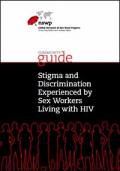
Resource | Guidelines,
This is a 7-page guide to the Stigma and Discrimination Experienced by Sex Workers Living with HIV briefing paper. It looks at the different types of stigma and discrimination experienced by sex workers living with HIV globally. This community guide provides recommendations for policies and practices which respect their human rights. It uses case studies that highlight the experiences of sex workers living with HIV and the efforts required to meet their needs, and advocate for their rights.

Resource | Publications,
This Strategic Plan sets out the key directions for the Global Network of Sex Work Projects (NSWP) in 2016–20. It outlines how – in those five years – NSWP will build on its significant achievements and lessons to date, while also strengthening critical areas of its work and responding to a changing and challenging environment.
The Strategic Plan 2016–20 is the result of extensive consultation among NSWP’s members, as well as other stakeholders – Board, staff, donors and partners. The consultation was led by an independent Global Consultant. They were supported by independent Regional Consultants who, in turn, coordinated local Key Informants to carry out in-depth national consultations with NSWP members in selected countries.

Resource | Publications,
This joint briefing paper by NSWP and INPUD highlights the specific needs and rights of sex workers who use drugs, as a community that spans two key populations. This document provides an overview of some of the most endemic and substantive ways in which sex workers who use drugs face double criminalisation and associated police harassment, intersectional stigma, compounded marginalisation and social exclusion, heightened interference and harassment from healthcare and other service providers, infantilisation, pathologisation, and an associated undermining of agency, choice, and self-determination.
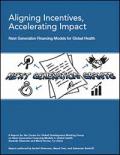
Resource | Publications,
Founded in 2002, the Global Fund to Fight AIDS, Tuberculosis and Malaria (the Global Fund) is one of the world’s largest multilateral health funders, disbursing $3–$4 billion a year across 100-plus countries.
Many researchers and policymakers have hypothesized that models tying grant payments to achieved and verified results—referred to in this report as next generation financing models—offer an opportunity for the Global Fund to push forward its strategic interests and accelerate the impact of its investments. Realizing their potential requires technical know-how and careful, strategic decisionmaking that responds to specific country and epidemiological contexts—all with little evidence or experience to guide the way.
This report addresses the how of next generation financing models that is, the concrete steps needed to change the basis of payment from expenses to something else: outputs, outcomes, or impact.
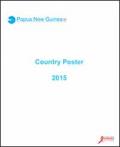
Resource | Fact Sheets,
Papua New Guinea country poster prepared by UNAIDS Regional Support Team for Asia and the Pacific and Data Hub.
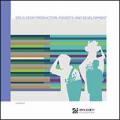
Resource | Publications,
The cultivation of drug crops such as opium poppy, coca, and cannabis is a vital source of economic and physical security for poor, marginalized, and vulnerable communities in the Global South. International drug control strategies that have targeted cultivators with violent state coercion and eradication strategies have fueled displacement, ecological damage, and land poverty, while exacerbating existing problems of malnutrition and infectious disease. Such approaches have proved particularly counterproductive in conflict contexts, where an assumed nexus between drug revenues and the financing of terrorism and insurgency has undermined prospects for peace and stability.
This briefing paper highlights some relevant issues for debate in the UNGASS on drugs, focusing on strategies for addressing drug crop production as a development issue.
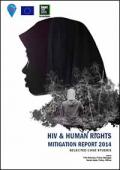
Resource | Publications,
Thirty years into the HIV epidemic, it is disheartening to note that stigma and discrimination remain a fact of everyday life for people living with HIV. The case studies highlighted in this report are testament to the many forms of attitudes, practices and systems across a wide range of sectors that continue to ‘punish’ HIV to this day.
In the past year, HIV related discrimination in educational institutions and work place settings was particularly disturbing. In spite of assurance of good health by medical experts, employees and students living with HIV were dismissed and denied educational opportunities respectively on grounds of 'ill-health'. This underscores the urgent need to review policies that were ill-informed or outdated to reflect the most recent advancement in HIV medicine.
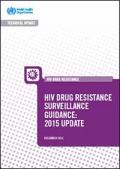
Resource | Guidelines,
To minimize the emergence and spread of HIV drug resistance (HIVDR), the World Health Organization recommends HIV treatment scale-up be accompanied by measures to monitor and improve the quality of ART delivery and surveillance of HIVDR.
This update provides an overview of the essential elements that programme managers should include in programme planning to prevent and monitor the emergence of HIVDR. It also describes programmatic relevance and use of data.
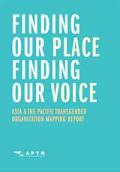
Resource | Publications,
Throughout Asia and the Pacific resources dedicated to transgender issues are extremely limited and very few are directly in the hands of transgender communities.The Asia Pacific Transgender Network mapping exercise is a crucial initiative. It contributes to progress in transgender welfare in Asia and the Pacific and to fostering stronger links across the region.
In this first attempt to map out transgender organizations, the report reflects the diverse range of amazing work being done with limited – or even no – funding. It shows the deep commitment and dedication of the transgender community across the region, whether in the area of HIV and health or in broader rights issues such as legal gender recognition, and legal protection from discrimination.





